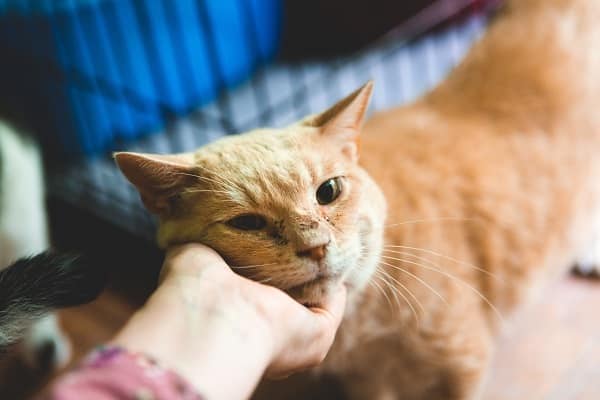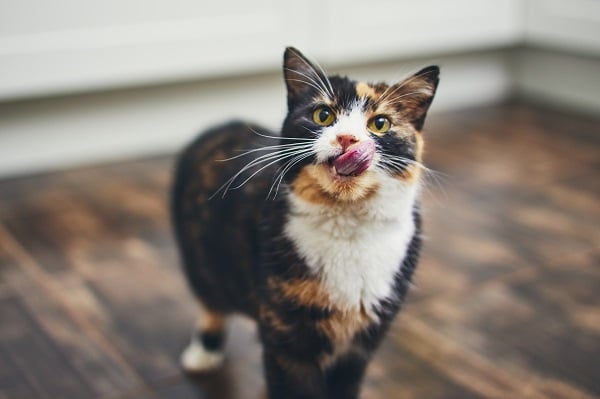Cats, those mysterious and elegant creatures, have been companions to humans for thousands of years. In ancient times, they were revered for their hunting skills and eventually became symbols of grace and protection in various civilizations. Today, the feline-human bond extends beyond mere companionship, touching upon a realm that many find fascinating: health and well-being. This post delves into the emotional, psychological, and physical benefits that cats can bring into your life. From the science of their purr to their impact on cardiovascular health, you’ll discover the intriguing healing powers of cats.
The Historical Bond Between Humans And Cats

The relationship between humans and cats dates back to ancient times. Cats were initially appreciated for their skills in hunting pests, particularly in grain storage areas, and it wasn’t long before they were welcomed into human settlements. Egyptians revered them, considering cats to be sacred animals and even incorporating them into their religious beliefs. It’s said that a household with a cat was considered protected, and the creatures were linked with goddesses like Bastet, who was the goddess of home, fertility, and childbirth.
However, the role of cats has evolved over the years. What started as a mutually beneficial relationship for hunting and protection has turned into a deep emotional bond. Cats have moved from the barns and outdoors to the insides of homes, sitting comfortably on laps and becoming a part of family photos. They are no longer just pest controllers; they’ve become cherished members of families, offering companionship and, as you’ll soon discover, numerous health benefits.
The Science Of Purring

One of the most enchanting features of cats is their purring. But have you ever wondered why cats purr or what function it serves? Interestingly, the mechanism of purring involves the brain sending repetitive neural oscillator signals to the voice box muscles, causing them to twitch at a frequency of 25 to 150 vibrations per second. This twitching causes a separation of the vocal cords, creating the purr you recognize and love.
The act of purring does not merely serve to communicate relaxation or contentment. Researchers suggest that the vibrations from purring have healing effects, particularly in the reduction of stress and anxiety. Numerous studies have highlighted the positive physiological responses in humans when exposed to the purring of cats. These range from lower stress hormone levels to reduced blood pressure, making the humble purr a powerful tool in promoting mental wellness.
Cats As Emotional Support Animals

When thinking of emotional support animals, dogs often come to mind. However, cats have been increasingly recognized for the emotional support and stability they offer. While not all cats are officially certified as emotional support animals, the companionship they provide often alleviates symptoms of anxiety, depression, and other emotional and psychological conditions. According to the Fair Housing Act in the United States, cats that are recognized as emotional support animals are permitted in residential buildings that otherwise do not allow pets.
What makes cats excellent emotional support animals are their intuitive nature and independence. Unlike dogs, most cats do not require constant attention and are generally low-maintenance, making them ideal for people with busy lifestyles or those who cannot manage the needs of a more demanding pet. With their soothing purrs and quiet presence, cats offer an unintrusive form of emotional comfort. Whether curling into your lap or simply sitting beside you, they bring a sense of peace and normality that is often much-needed.
Lowering Cardiovascular Risks

A lesser-known yet increasingly researched benefit of owning a cat is its impact on cardiovascular health. Research has shown that owning a cat can reduce the risk of heart attack and stroke by as much as 30%. One study conducted over a 10-year period found that non-cat owners were more likely to die of cardiovascular diseases compared to cat owners.
How does owning a cat achieve this? One theory attributes this to the calming effects cats have on humans. Just the act of petting a cat can reduce stress and lower blood pressure, thereby reducing strain on the heart. The soothing rhythms of a cat’s purr, along with their generally calming presence, contribute to an environment that counters everyday stress, a well-known contributor to cardiovascular diseases.
Fostering Social Connection

Owning a cat has also been found to enrich one’s social life and community ties. When you have a cat, you join a community of fellow feline enthusiasts, whether through social media groups, neighborhood gatherings, or visits to the vet. Studies indicate that pet ownership, including cats, often facilitates social interaction. A simple walk to the park with your cat on a leash, or even sharing cute photos and stories online, opens up new avenues for socializing that may not have existed otherwise.
Moreover, cats often serve as social catalysts, paving the way for human interaction. It’s common for people to strike up conversations centered around their pets, bridging gaps between generations and backgrounds. Pets provide common ground, serving as a topic of conversation that can foster deeper connections. This is particularly beneficial for people who struggle with social anxiety or have difficulty initiating conversations, as a cat offers an easy and non-threatening topic to discuss.
Improving Mental Health

Cats have been proven to be exceptional companions for mental health. Their quiet presence often creates an environment conducive to healing and introspection. Studies show that the act of petting a cat can increase the production of serotonin, the “feel-good” hormone, helping to reduce feelings of anxiety and depression. Cats also offer a form of comfort and routine that can help mitigate the symptoms of various mental health disorders, such as PTSD and severe anxiety.
Interestingly, cats are also perceptive creatures. While they may not understand mental illness, they often sense when something is not right with their human companions. Many cat owners report their feline friends becoming more affectionate or staying closer to them when experiencing emotional turmoil. This intuitive behavior provides additional support and often acts as an emotional anchor during challenging times.
Cats And Children – Building Immunity

The benefits of cats extend to the younger members of the family as well. Research shows that children who grow up with cats in the home are less likely to develop allergies to pets. Some studies even suggest that early exposure to cats can help strengthen the immune system, reducing the risk of children developing asthma. The act of caring for a pet also instills a sense of responsibility and empathy in children, skills that are invaluable as they grow older.
But it’s not just physical health that benefits. Children also experience emotional and psychological benefits from having a pet cat. They serve as a form of emotional support, helping children navigate the challenges of growing up. Cats offer a non-judgmental ear and unconditional love, fostering a sense of security and boosting self-esteem in children. The simple act of caring for a living being helps children develop empathy and a sense of responsibility attributes that serve them well in life.
Cats And The Elderly – A Perfect Match

Cats can be especially beneficial companions for older adults. Their low-maintenance nature, compared to dogs, makes them ideal pets for those who may have mobility issues or are less active. Cats are generally content with less space and are often happy indoors, making them well-suited for apartment living or homes without yards. This convenience makes them particularly attractive to older people who might find the demands of a dog overwhelming.
Beyond the convenience, cats provide older adults with a sense of purpose and companionship that is invaluable, especially for those who live alone or are experiencing the emotional challenges associated with aging. The act of caring for a cat can provide a much-needed routine, while the feline’s presence helps alleviate feelings of loneliness and depression. Studies show that the elderly who own cats report higher levels of happiness and better mental well-being, making these creatures a perfect match for life’s later years.
Explore The Healing Powers Of Cats For Yourself!
Throughout this exploration of cats and their healing powers, it becomes evident that these creatures offer far more than mere companionship. From reducing cardiovascular risks and fostering emotional well-being to strengthening social bonds and even potentially lowering healthcare costs, cats contribute to a multifaceted range of human health benefits. Whether you’re young or old, living alone or with a family, a cat can be a therapeutic addition to your life!